Inderjit Bhogal: Sheffield minister wins World Methodist Peace Award once held by Russia's Mikhail Gorbachev
and live on Freeview channel 276
Reverend Doctor Inderjit Bhogal received the World Methodist Peace Award for his tireless work and effort in support of peacemaking through challenging war and violence.
Previous winners are former US president Jimmy Carter, Mikhail Gorbachev and Secretary-General of the United Nations Kofi Annan. The fact that a former Russian leader is on the list shows negotiation is possible.
Advertisement
Hide AdAdvertisement
Hide AdInderjit joined this illustrious list after championing the rights of refugees working alongside multi-ethnic and inter-religious communities.
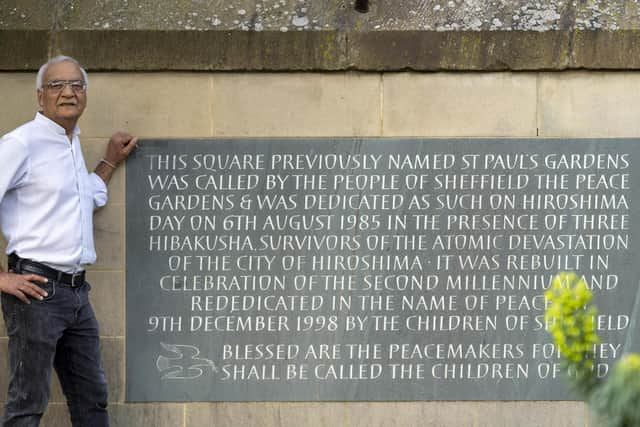

One of his major achievements is the establishment of the Cities of Sanctuary network and movement which took root in Sheffield and has now been taken up by many towns, cities and institutions. We meet him in the Peace Gardens, of course.
A father-of-two, he has three grandchildren and is a minster in Wincobank. He lives in Burngreave. Inderjit was born in Kenya and his family come from India. It has been some journey.
“I came to England aged 11, was fluent in five languages: English, Swahili, Punjabi - which is my mother tongue - Urdu and Hindi,” he said.
Advertisement
Hide AdAdvertisement
Hide Ad“Because I was fluent in English, a lot of people who were having difficulties with filling in forms especially around migration would come to me for help.
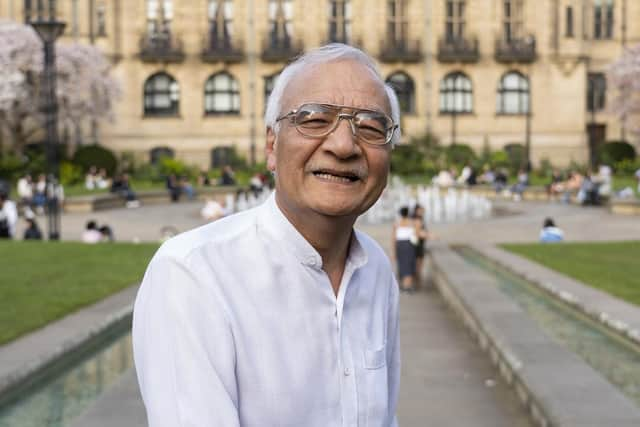

“So from the age of 11 I was working with people who were in difficulty in one way or another.
“I was at school with Lenny Henry in Dudley and he often focuses on bullying due to the colour of your skin.
“All those people who were hostile towards us as kids are so embarrassed in adulthood. At the time, they were brutal and made life difficult, they didn’t want to have anything to do with anyone of a darker skin colour.
Advertisement
Hide AdAdvertisement
Hide Ad“It was 1964, a new experience for them, I was the only person wearing a turban.
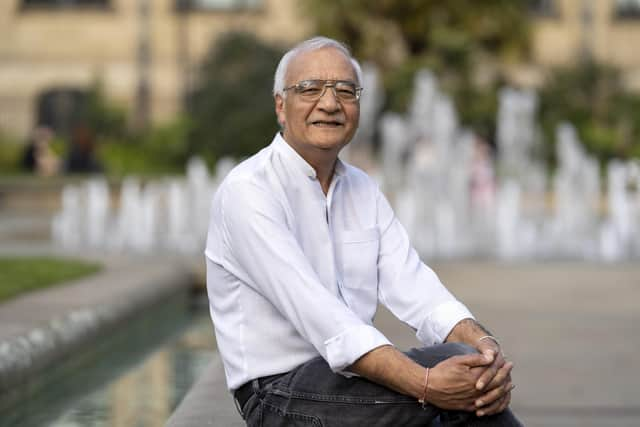

“My headteacher kept sending me to another school to learn English. He was convinced I had to learn even though I could speak five languages. I was sent back and forth and didn’t have an easy time. I left without qualifications because the school didn’t think I was up to much.”
He trained to become a Methodist minister, working in Wolverhampton, and his first taste of Sheffield came in 1980, when he was officially received into the church in a ceremony here.
In 1987, he started work as a chaplain in Broomhill. He went on to become Methodist chaplain for the city’s two universities. Both have also given him honorary doctorates and he’s got an OBE.
Advertisement
Hide AdAdvertisement
Hide AdInderjit says: “I worked hard to engage and study all areas of all faiths, working with the international student welfare officers to welcome students from other countries and make sure they were supported. Multi-faith help was unheard of at the time but it helped to start multi faith chaplaincy work.”
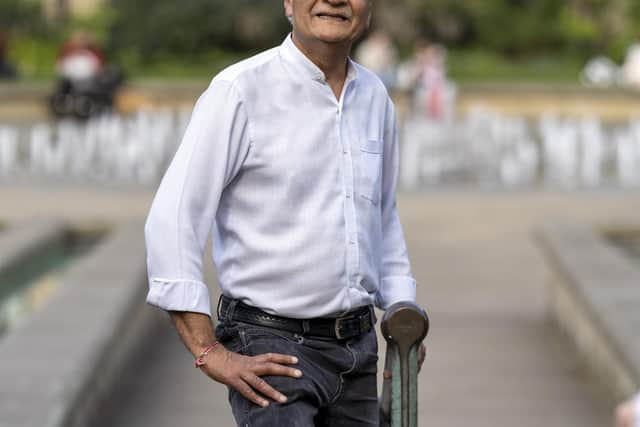

He was also instrumental in setting up the Homeless and Rootless at Christmas organisation after being told of a couple who had invited those who were alone for a festive meal in 1988. They had expected six people, but got 25.
“I heard about it and was determined that in 1989 they could all have a good meal,” he said.
“It was engaging with people on the fringes of society and I thought it would be temporary, there would not be homeless people by the year 2000 so I am embarrassed it is still there. I don’t take any pride in the fact that kind of support is still needed.”
Advertisement
Hide AdAdvertisement
Hide AdIn 1991, he hosted a meeting of Christians and Muslims in the wake of the Iraqi invasion of Kuwait.
“It was about saying we are not all hateful towards each other,” he said.
That became the Sheffield inter-faith movement, of which he said: “It embraced all the religious communities in the city, a recognition of serving all people whatever their religious outlook.”
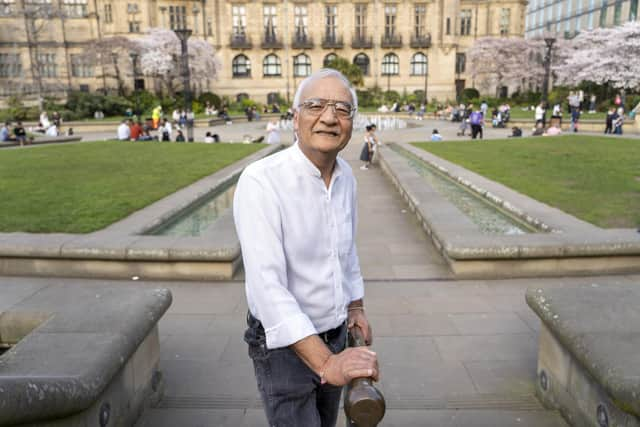

Three years later, he moved to Burngreave.
“Normally people move from Burngreave to Broomhill, my move expresses where my commitment is and that’s where the need is greatest,” he said.
Advertisement
Hide AdAdvertisement
Hide AdHe was made director of the Urban Theology Unit, based in Pitsmoor.
“It made me the first person from any minority ethnic group to do that, it was pioneering work, cutting new ground,” he said.
In 2000 he was made president of the Methodist Conference, the first person born outside of Britain to achieve the post. “I have not been pedestrian in my life in the church,” he says.
He was also a prime mover in the City of Sanctuary. In 2005 with collaborator Craig Barnet they asked all organisations working with refugees to get together and celebrate their work.
Advertisement
Hide AdAdvertisement
Hide Ad“We agreed if we worked together, we could make a big impact in the city – effect attitudes and build a culture of welcome hospitality and safety,” he said.
“We were working with refugees who were saying sanctuary made them feel safe and we wanted to spread that success with universities, business, schools, faiths and communities.”
The aim was for a City of Sanctuary, which Inderjit says comes from the Bible when God told Moses to set up cities of refuge. And by 2007, Sheffield was recognised as a City of Sanctuary.
“It is a network of organisations and individuals working together to build the kind of city we want to live in and be proud to live in,” he said.
Advertisement
Hide AdAdvertisement
Hide Ad“We have created a path here which has been taken up by 120 cities.”
His message to critics is simple: “Instead of being negative to people who work together, join us and let’s work together.
“It is a grassroots movement and not about putting those from other countries first because the first thing I did was work with the homeless and rootless here.
“It is not a competition about who we support, it’s about treating everybody equally.”
Advertisement
Hide AdAdvertisement
Hide AdAs for the award, he dedicates it to Sheffield. “I am who I am because of Sheffield and have received the award because there are many, many people here who live the ideals and vision we share,” he says.
“I sit in the radical and reformist tradition of the city, I’m not some eccentric weird character, I’m actually in the Sheffield tradition. I am very humble to be listed alongside other recipients. I take pride that a Sheffield straight forward ordinary guy working at street level is recognised internationally.
“It ought to be something that is good for Sheffield so when I received it in this city in front of many people from many countries they were delighted by the stories of how Sheffield is leading the way, giving a vision for our times.
“We live in difficult times, when there are unprecedented numbers of people threatened by war and conflict. How do we respond to hatred and hostility? Counter hostility with hospitality. Leaders talk about sanctions but they hurt everybody in the end, look at our energy bills and fuel tariffs.
Advertisement
Hide AdAdvertisement
Hide Ad“I say what we need to do is build a world which is a sanctuary, not just Sheffield, the whole world should be a place which gives protection to people.
“You do that by stopping the wars. I want to work with other leaders to build a world without weapons but which is content.
“Martin Luther King said nobody is free until everybody is free. I say no-one is safe until everybody is safe.”
On receiving the award in Sheffield, he told the audience: “I am surprised but also deeply honoured to receive the World Methodist Peace Award.
Advertisement
Hide AdAdvertisement
Hide Ad“It is humbling and to be listed alongside other remarkable recipients of the award.
“My whole life has been inspired by people around the world who have held up the witness to peace making, challenging war, violence and killing.
“I am more persuaded than ever that non-violent resolution of conflict is the way forward in all human relationships.
“War uses the very weapons it opposes and is thus a contradiction. Wars escalate. Wars make refugees. We see this in the wars without end today, not least in Afghanistan, Israel/Palestine, Sudan, Syria, Ukraine, Yemen.
Advertisement
Hide AdAdvertisement
Hide Ad“It is important to strengthen peace-making, and nonviolence as the way to resolve conflict, and it is important to uphold the witness of peace-making and of nonviolence led by people like Mahatma Gandhi, the Rev Dr Martin Luther King, the sainted Archbishop Oscar Romero, the recipients of the World Methodist Peace Award, and numerous less well-known and celebrated people.”
His goals remain to build a world without war, a world where we ‘learn war no more’.
Inderjit says: “To build a world without weapons of war, non-nuclear, where we learn together to resolve conflict with the art of nonviolence, and invest in instruments of healing not harming, and foster reconciliation.
“To build a world that learns the art of sanctuary, which is warm welcome, protective hospitality and safety, especially with the most vulnerable.”
Advertisement
Hide AdAdvertisement
Hide AdHe closed his acceptance speech with the words of an African slave who freed himself by his own industry and education, wrote his autobiography and came to Sheffield 230 years ago promoting his book and equality. His name is Olaudah Equiano, who closes his book with words from the book of Micah in the Bible.
“After all,” he writes, “what makes (anything) important, unless by its observation we become better and wiser, and learn to act justly, love mercy and walk humbly.”
